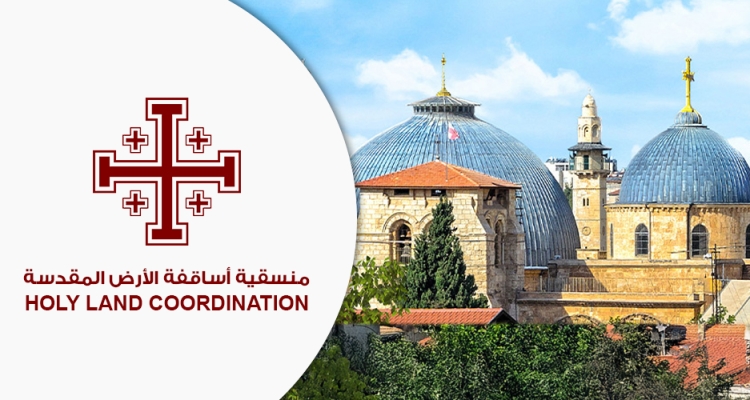At the end of the last century, the Holy See proposed that bishops from various countries to coordinate their interests and involvement in the life of the Churches in the Holy Land. He suggested it would be preferable for bishops from countries that have historically influenced events in the Holy Land to organise this themselves. This should emphasise pastoral care rather than diplomatic or political activities by the Holy See. A coordinated and regular presence serves as a reminder to the Israeli and Palestinian political authorities that Catholics around the world are aware of the conditions faced by their brothers and sisters in the Holy Land.
The upcoming meeting scheduled to take place in Jerusalem from Saturday 18th January to Thursday 23rd January 2025, will include bishops representing the following Episcopal Conferences: the United States of America, England and Wales, France, Germany, Ireland, Scotland, Spain, the Nordic Countries, Lithuania, and the Church of England.
Delegates from the Council of European Bishops’ Conferences (CCEE) and the Commission of the Bishops’ Conferences of the European Community (COMECE) will also participate, as will representatives of various Catholic organisations.
This year, the focus will be on the current situation in the Holy Land and its impact on the Christian community in Gaza and the West Bank. The bishops will examine how the Church responds to the needs of the people, continuing to serve as a shining light and a beacon of hope.
During the week, the bishops will meet with the Latin Patriarch of Jerusalem and the Apostolic Nuncio. They will receive briefings from the CEO of the Latin Patriarchate, Catholic Social Services, and the member bishops of various diplomatic missions. Additionally, they will participate in an online meeting with the Catholic community in Gaza and receive updates from Fr. Gabriel Romanelli and parishioners. The bishops will also spend a day with Caritas Jerusalem and visit projects in Taybeh and Ramallah. They will express their support for Christian travel agencies by encouraging the resumption of pilgrimages to the Holy Land.
A vital part of every Coordination meeting is celebrating Sunday Mass with the local community. This year, the bishops will celebrate Mass with the parishioners of Our Lady of Seven Sorrows in Aboud, near Ramallah in the West Bank.
Prayer serves as the framework for the annual meeting, which includes daily Eucharistic celebrations, often in different Catholic rites. The bishops visit the Holy Land to pray with and for the Christian community. Upon returning home, they encourage their local communities to pray for their Christian brothers and sisters.
Pilgrimage is one of the most engaging aspects of the annual meeting. The bishops will visit some of the Holy Places and often hear pleas to encourage pilgrimages from their home countries. There has been a concerted effort by bishops’ conferences to promote pilgrimages as an essential means of supporting the Christian community in the Holy Land.
Pressure or persuasion refers to the actions taken after the annual meeting when bishops speak at high levels to their governments, parliamentarians, and Israeli and Palestinian ambassadors about a wide range of issues impacting the lives of Holy Land Christians. In line with the Holy See’s approach elsewhere, the bishops do not seek special privileges for Christians but rather advocate for dignity and justice for them and for others in similar conflicts.
Presence is crucial; the bishops return to the Holy Land every year to remind the Christian community that they are not forgotten by their brothers and sisters worldwide.
Although the bishops of the Coordination do not visit the Holy Land for political reasons, their visits often confront complex political challenges. Therefore, it is essential to produce a final statement at the end of the meeting that addresses these issues while remaining rooted in the pastoral motivation for their presence. The bishop’s daily reflections will shape this final statement.
The Coordination is not perceived by the Holy See or its members as a fundraising or project-based organisation, although some projects and growth in pilgrimages have developed as a result of the annual meeting.
By: lpj






